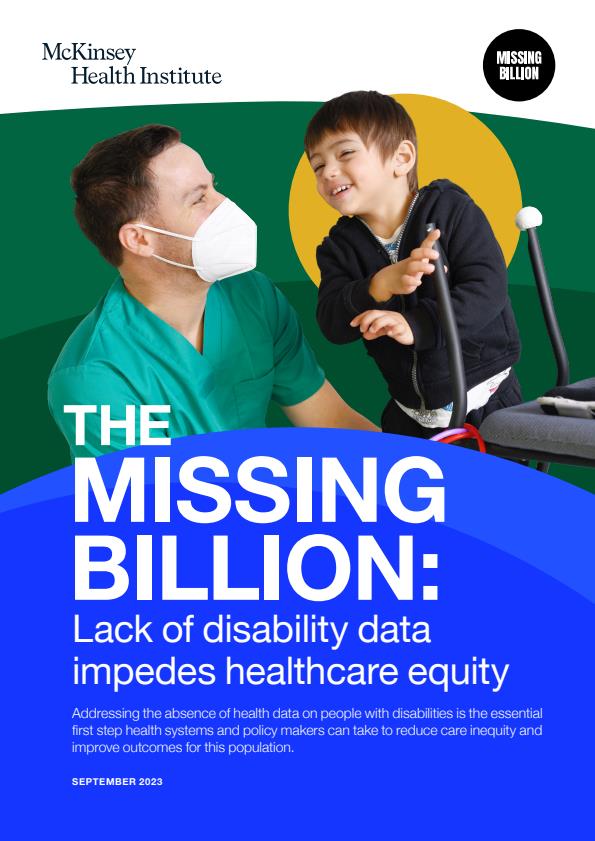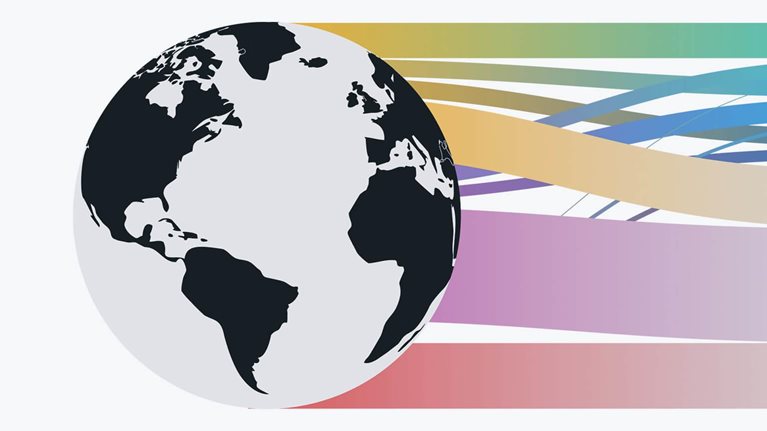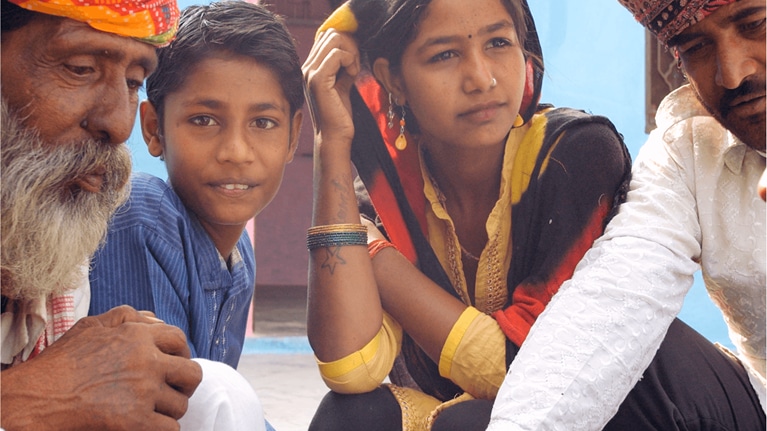Around the world, 1.3 billion people, or 16 percent of the population, are living with significant disabilities, according to the World Health Organization (WHO).1 By and large, these individuals experience more barriers to accessing healthcare than the general population (see sidebar “Defining ‘disability’ and effects on care access and outcomes”). As a result, the United Nations’ goal of “ensuring healthy lives and promoting well-being for all at all ages” will be very difficult to achieve.2
People with disabilities have a right to add years to their lives and life to their years through better health.3 Closing health outcome gaps between populations with and without disabilities—in all dimensions of health (physical, social, mental, and spiritual)—calls, first and foremost, for good data. However, there are sizable and persistent gaps in health data with respect to people with disabilities.4 In a 2023 review of data sets across 188 countries, 63 had no data sets with functional-difficulty questions5 between 2009 and 2022.6 As described in the McKinsey Health Institute’s (MHI) six shifts to reach the full potential of human health,7 better data is needed to do the following:
- raise awareness of the scale and nature of disparities in health outcomes; measurement is foundational to improvement
- determine, and build awareness of, the benefits of improving health equity and outcomes for people with disabilities8
- identify and quantify the healthcare access barriers experienced by people with disabilities
- determine ways to close the health outcome gap by using data to inform and scale “what works” given that interventions often do not translate into action9
- establish a baseline with standardized measurements, set targets, and monitor the progress of interventions
MHI is working with the Missing Billion Initiative to address health system challenges and close this gap in health data and equity (see sidebar “About the Missing Billion Initiative and the McKinsey Health Institute”).10 In this first report, we explore how a lack of health data exacerbates the challenges of meeting the needs of people with disabilities. We also share analysis of the maturity levels of different countries with respect to data collection and usage, and we outline actions stakeholders could take to close the health data equity gap.
Author’s note on methodology: In May 2023 we conducted a data maturity index assessment of nine countries: Australia, Brazil, Canada, France, Malawi, South Africa, Thailand, Uganda, and the United Kingdom. The maturity scale was developed based on the strength of each country’s main data collection methods in closing the disability health data gap and how well the data is used. We also identified actions countries could take to improve data maturity and actions different stakeholder groups could take to help overcome the gap in disability health data.
Read our full report.



